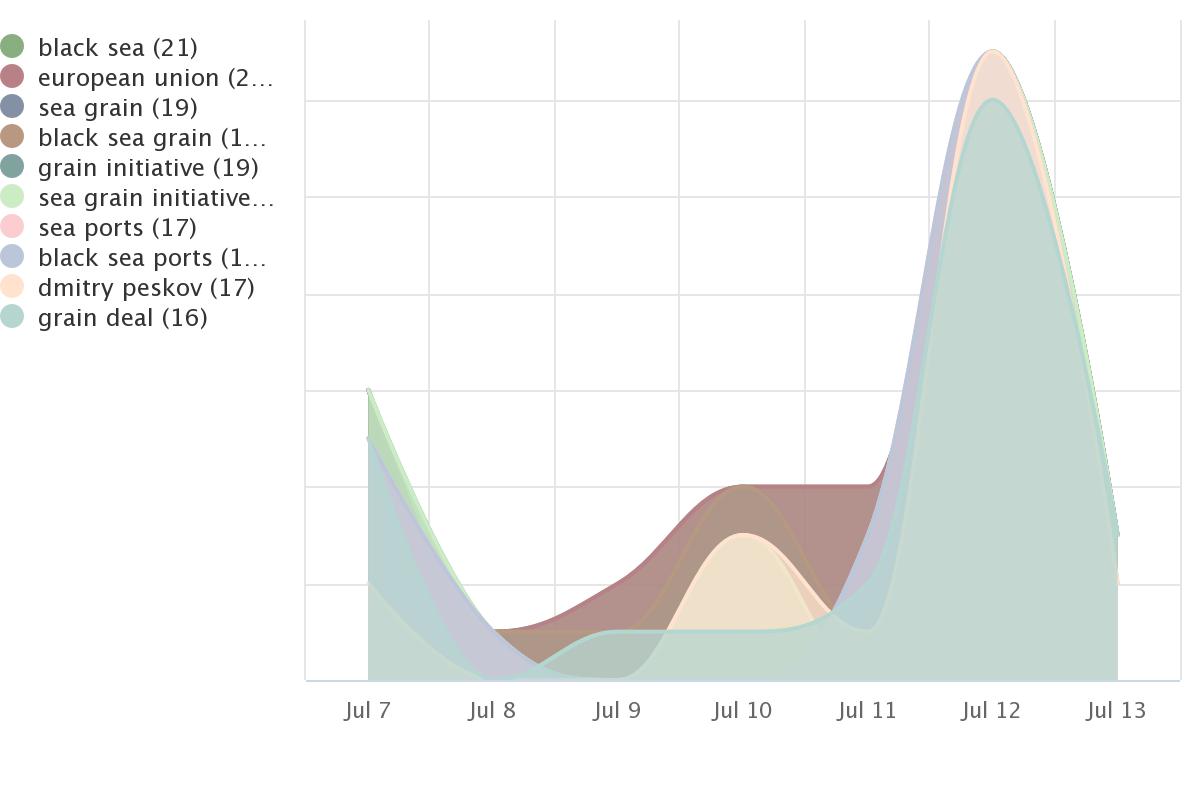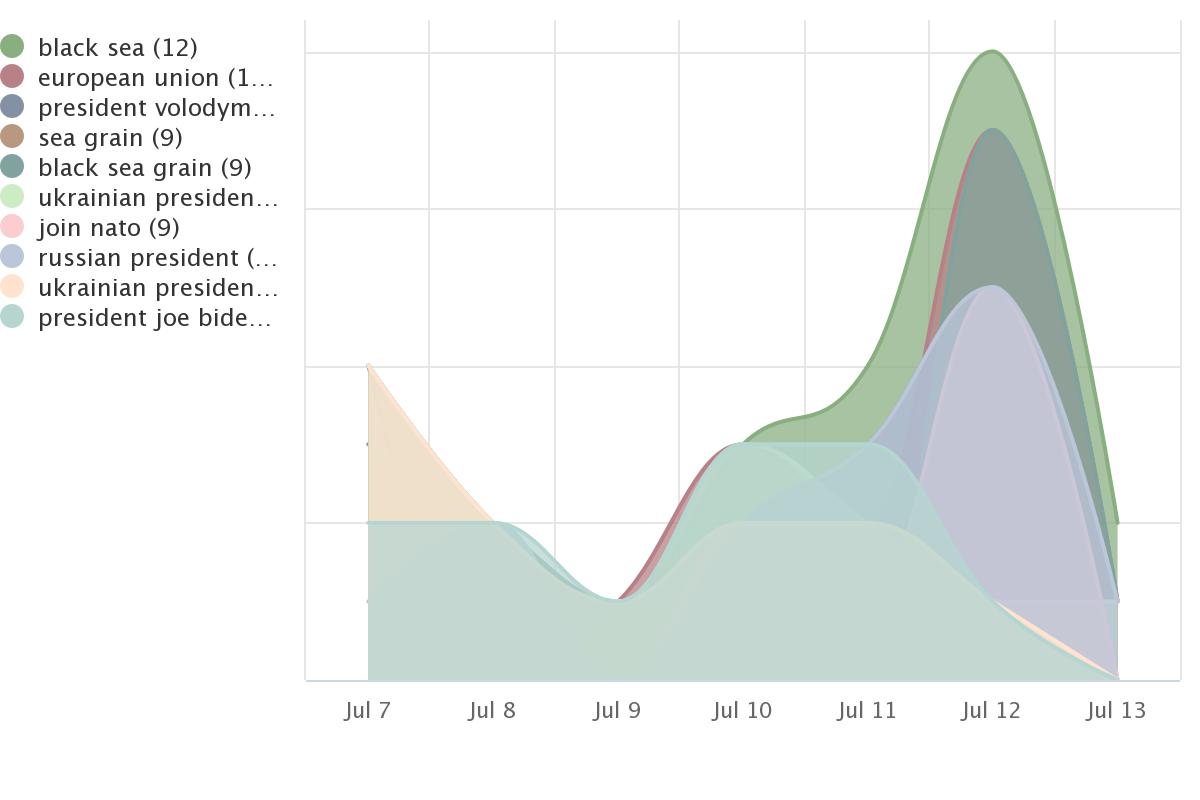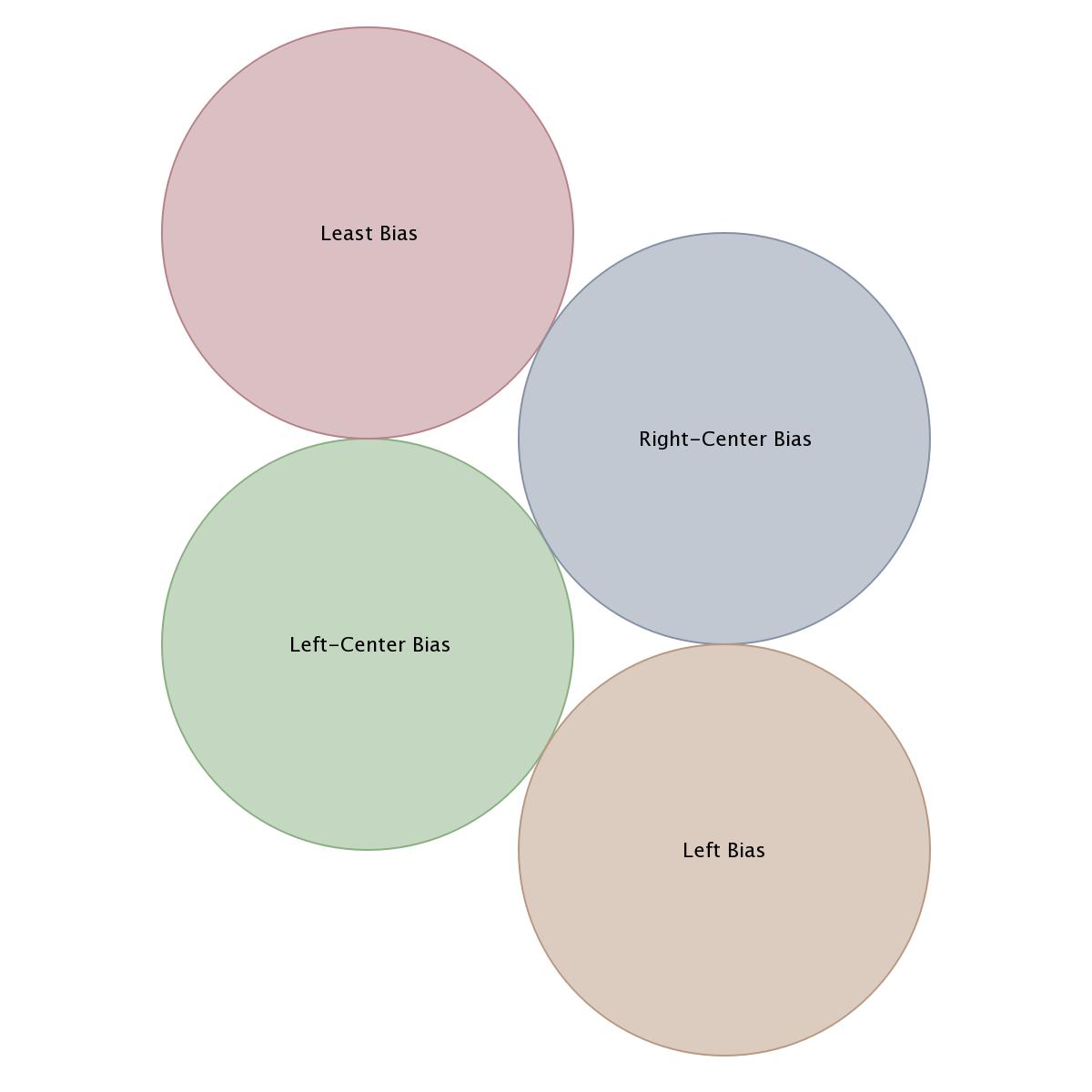
The media narratives surrounding the EU, UN, Turkey, and Russia involve their involvement in a bid to extend a Black Sea grain deal. There are concerns growing that Russia will not extend the agreement, which expires on July 17. Our Narrative Intelligence indicates that this issue is being amplified by multiple sources.
Our Kudzu Narrative Intelligence briefs auto-update every few hours with fresh analysis:
Russia has threatened to quit the Black Sea grain deal, citing unmet demands regarding its own grain and fertilizer dispatch. This has raised concerns about the extension of the agreement. Key insights from our Narrative Intelligence include:
Key Takeaways:
The EU and UN are working together to extend the Black Sea grain deal. U.N. Secretary-General Antonio Guterres proposed in a letter to Russian President Vladimir Putin that Moscow allow the deal to continue for several months. Key insights from our Narrative Intelligence include:
Key Takeaways:
Concerns are growing that Russia will not extend the United Nations-brokered Black Sea grain deal. This deal allows grain to flow from Ukraine to parts of the world struggling with hunger. Key insights from our Narrative Intelligence include:
Key Takeaways:
In the analysis of the top surfaced keywords in U.S. media, it is evident that certain keywords appear more frequently than others. The keywords related to the Black Sea and grain initiative have the highest occurrence, with a value of 21. This indicates a strong focus on the Black Sea region and its grain production in U.S. media narratives. Additionally, keywords such as sea ports, United Nations, and Russia and Ukraine also appear frequently, suggesting a connection between international trade, diplomacy, and the ongoing conflict in the region.
Comparatively, the top surfaced keywords in European media present a different narrative. While there is still a focus on the conflict between Russia and Ukraine, keywords such as President Volodymyr, Ukrainian President, and NATO membership have higher values. This indicates a stronger emphasis on the political dynamics and potential alliances in the region. The presence of keywords like Vladimir Putin, Recep Tayyip Erdogan, and NATO summit further highlights the geopolitical nature of the narrative in European media.
It is interesting to note that some keywords, such as food prices, global food crisis, and Western sanctions, appear in both U.S. and European media. This suggests a shared concern about the impact of the conflict on global food security and the potential consequences of international sanctions.
Overall, the surfaced keywords provide valuable insights into the competing narratives surrounding the Black Sea region and its significance in the geopolitical landscape. The differences in keyword occurrence reflect the varying priorities and perspectives of U.S. and European media outlets.

in U.S. Media

in European Media
Our Narrative Intelligence reveals interesting insights into bias in U.S. media. A comparative analysis of media coverage across political leanings shows significant differences. Left-center sources have the highest bias, with a staggering 33% of their coverage leaning towards a particular narrative. This is followed by least biased sources at 11%, right-center bias at 8%, and left bias at a mere 1%. The numerical differences are striking, with left-center bias being more than double that of right-center bias. These findings highlight the need for a balanced and diverse media landscape. Our Narrative AI and Narrative Technology can play a crucial role in providing unbiased information to the public.

U.S. Media
Note: Kudzu Narrative Intelligence briefs update every few hours. Very likely, the Narrative Analysis data visualization depicted in the graphic above will have changed as well.
Image Credit for Article Header: Calistemon, CC BY-SA 4.0, via Wikimedia Commons